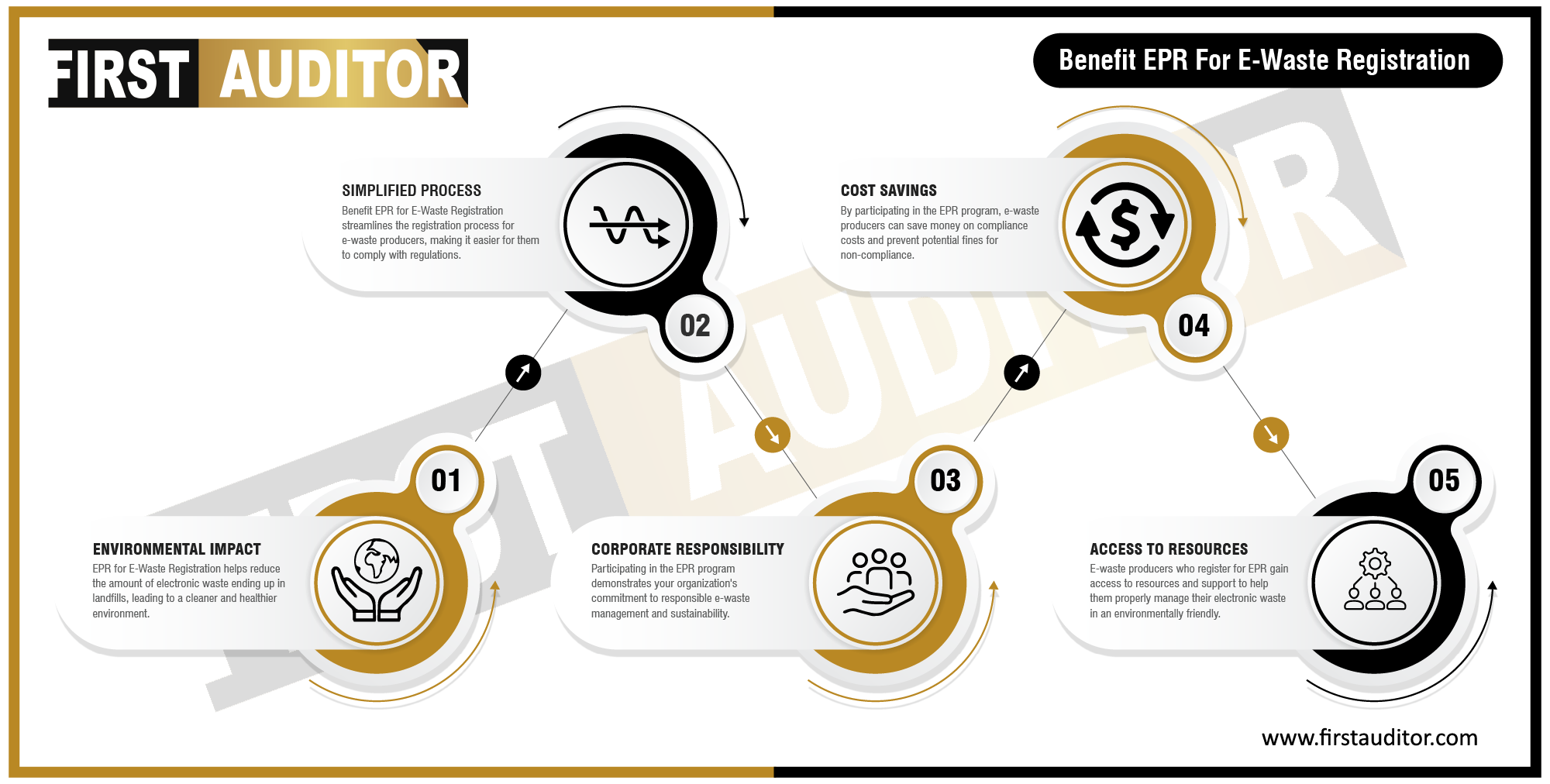The E-Waste (Management) Rules, 2016 in India mandate e-waste EPR compliance, requiring producers and consumers to gather and dispose of e-waste responsibly. Manufacturers must ensure environmentally sound recycling and accept returns from consumers. Producers must obtain permission from the State Pollution Control Board and establish collection stations.
Entities eligible to apply for Extended Producer Responsibility (EPR) for e-waste typically include manufacturers, producers, assemblers, importers, refurbishers, bulk consumers, and recyclers of electronic products. These entities play a crucial role in ensuring proper management and recycling of electronic waste in compliance with environmental regulations.
The first step in the EPR registration process for e-waste is to complete Form 1 of the E-Waste (Management) Rules, 2016 application and ensure that all required paperwork is included.
Once the application is completed, it is necessary to upload and send KYC (Know Your Customer) documents to the EPR portal.
After submitting the KYC documents, the remaining paperwork must be sent in along with the payment of the application fee.
It is important to follow up with the CPCB (Central Pollution Control Board) within a 15-day period to address any issues that may arise during the assessment of the application.
Upon successful completion of the application process, the CPCB will provide the certificate of permission within a timeframe of less than 30 days.

EPR (Extended Producer Responsibility) for E-Waste registration is a mandatory requirement for manufacturers, importers, and brand owners of electrical and electronic products. It involves taking responsibility for the end-of-life disposal of e-waste by ensuring its collection, recycling, and environmentally sound disposal.
Manufacturers, importers, and brand owners of electrical and electronic equipment (EEE) must register for EPR for e-waste to comply with government regulations aimed at the responsible management of e-waste.
Documents required for EPR registration typically include company registration documents, product details, waste management plans, agreements with e-waste collection centers, and other relevant information as specified by the regulatory authority.
To register for EPR for E-Waste, visit the official portal of the Central Pollution Control Board (CPCB), fill in the necessary forms, upload required documents, and pay the applicable registration fees.
The costs for EPR for E-Waste registration can vary based on the size of the company and the volume of e-waste generated. The fee structure is typically provided by the regulatory body (CPCB or respective State Pollution Control Board).
The time taken to process EPR for E-Waste registration can range from a few weeks to a few months, depending on the thoroughness of the application and the responsiveness of the regulatory authorities.
Failure to register for EPR for E-Waste can result in fines, penalties, and legal action by the government, as well as potential restrictions on business operations.
Yes, EPR registration for E-Waste is typically valid for a specified period and must be renewed periodically to maintain compliance with environmental regulations.